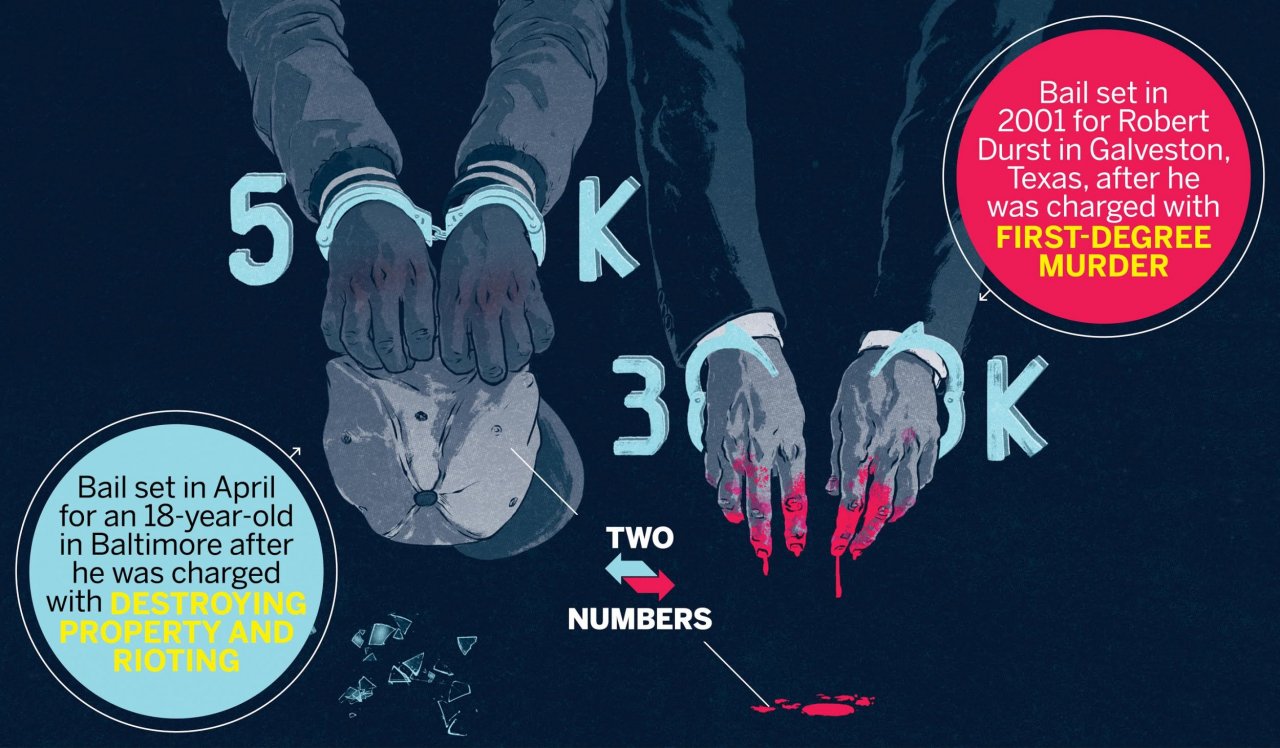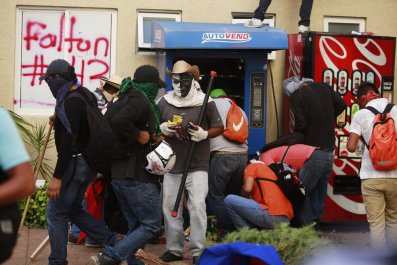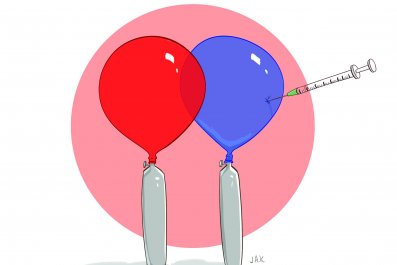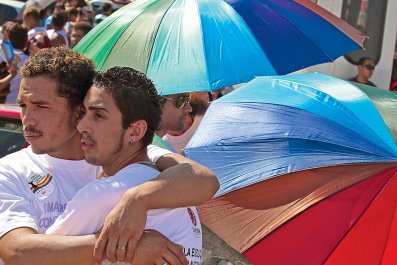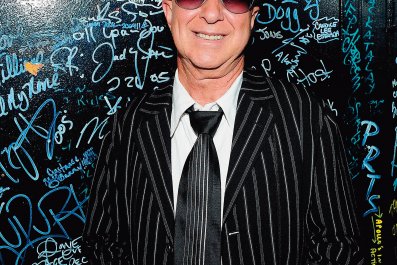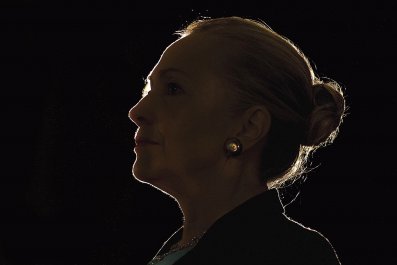"People in Baltimore often refer to bails as ransoms because they're impossible to meet," says Marci Tarrant Johnson, a public defender in Baltimore.
That rang true for some of the 500 or so people arrested in the city during and after the recent rioting and protests following Freddie Gray's death in police custody. While many were released without being charged because they couldn't be processed in time, others had their bail set at what seemed like unusually high amounts.
Johnson says bail for disorderly conduct was as much as $100,000, and it went up to $250,000 for some misdemeanor charges—even though bail hearings often are not even required in such cases.
Allen Bullock, who was charged with destroying property and rioting, saw his bail set at $500,000. The 18-year-old turned himself in, at his parents' encouragement, after a photograph of him smashing a police car windshield went viral. "These parents did the right thing and brought him to the justice system," says Bullock's attorney, Brandon Mead. "Then the justice system turned on him."
Bullock faces eight charges, but all are misdemeanors. He's not suspected of killing anybody, and even if he were, his bail could've been lower—if he were somewhere other than Baltimore.
There are no apple-to-apple comparisons, but in Galveston, Texas, real estate tycoon Robert Durst stood accused of shooting Morris Black, his neighbor, and then cutting Black's body into small pieces and dumping it into the Galveston Bay in 2001. Authorities were able to find the murder weapon, which linked Durst to the crime, but never recovered Black's head. Durst's bail was set at $300,000.
He was later acquitted of murder, though he confessed to the dismemberment.
Bullock and Durst both have criminal records, but Bullock's includes only juvenile offenses, while Durst remains the prime suspect in the 1982 disappearance of his first wife, Kathleen. Durst is a multimillionaire; Bullock is far from it: To get Bullock out of jail, his family used crowdfunding to raise about $10,000 for a down payment to a bail bondsman, who fronted the remaining $490,000.
Human rights lawyer Nicole Lee says high bail has always been an issue in Baltimore, and the amounts in excess of $100,000 following the riots are about average. Fred W. Frank Bail Bonds, a popular local service, says its average bond is $150,000.
When bail is set, a judge must determine whether the suspect is a flight risk and quantify how much money the suspect might be willing to lose. That's not always a good estimate. Durst was apparently fine losing $300,000: He skipped bail and was free for years until he was arrested in a convenience store for shoplifting a sandwich, newspaper and Band-Aids. He's now in prison, awaiting trial for another murder.



